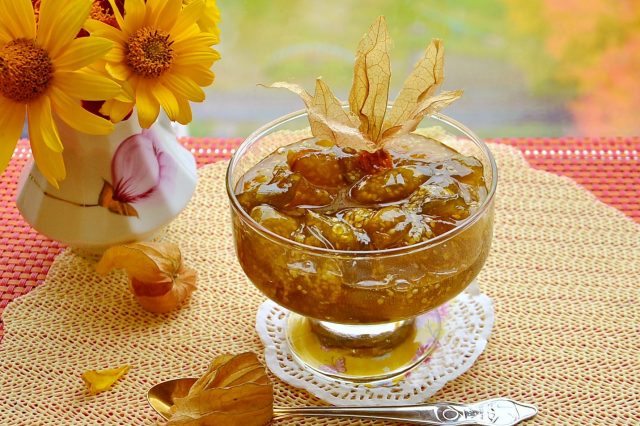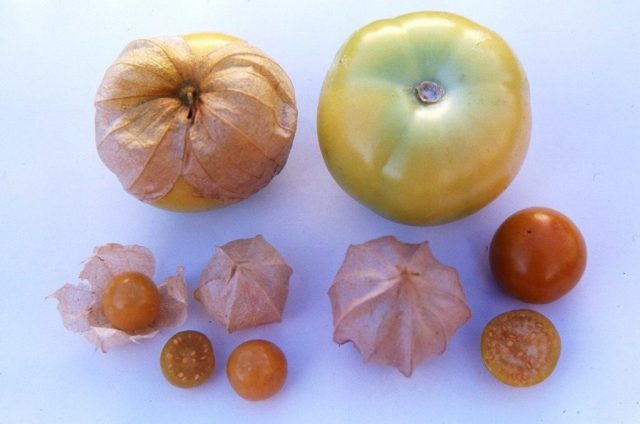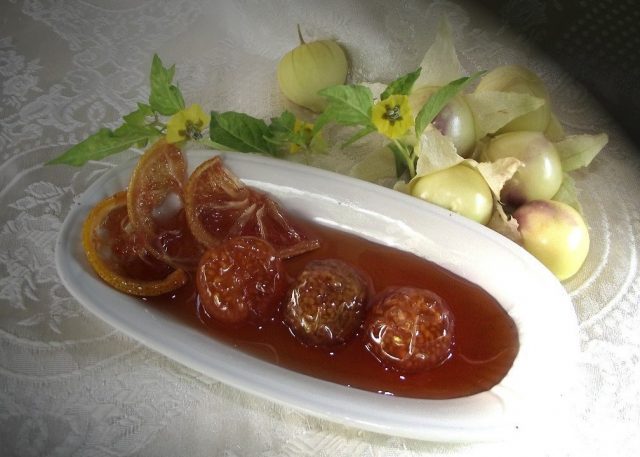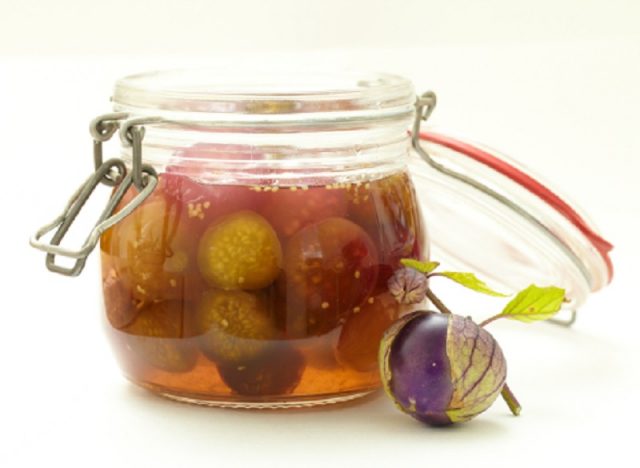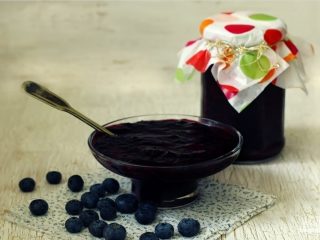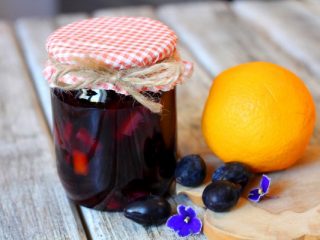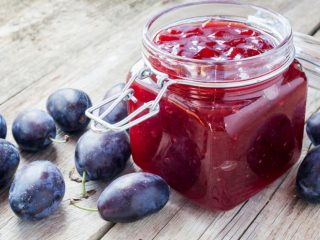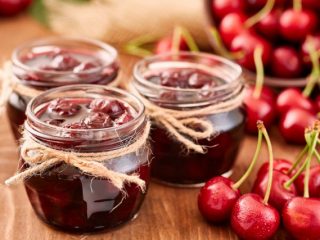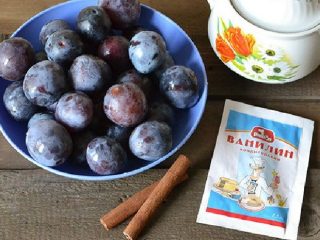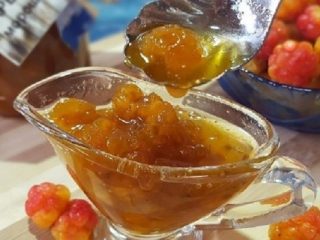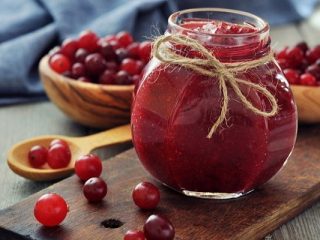Content
The most delicious recipe for physalis jam with lemon is easy to prepare, but the result can surprise the most spoiled gourmets. After cooking, the unusual berry resembles both a gooseberry and a fig. Different varieties have their own shades of taste, and adding lemon, ginger, mint, and various spices to recipes allows you to create a new, unique dessert every time.
How to make physalis jam with lemon
Physalis belongs to the nightshade crops and originates from the American continent. From a scientific point of view, it is a berry, but in cooking it is also used as a vegetable. To make physalis jam with lemon the most delicious, you will need proper preparation:
- Only fully ripened raw materials are suitable for jam. Ripeness is determined by the complete drying of the cover capsule.
- The dry fruit shell is peeled off as quickly as possible after picking, otherwise the berries in the dessert will taste bitter.
- Waxy deposits from the surface can be easily removed by blanching the raw material for 2 minutes in boiling water. This technique further softens the dense shell.
- If the jam recipe involves using the whole physalis, be sure to infuse the mixture in syrup between cooking stages to completely saturate the pulp.
- Even small fruits should be pierced at the stem before cooking. Large specimens are pierced through with a toothpick in several places.
Physalis does not have a distinct aroma and contains some organic acids. Jam made from berries and sugar according to the classic recipe may seem sickly sweet. Additives are selected according to your own taste, but the best combination is provided by the introduction of lemon. Citrus replenishes the necessary acid, balances the taste, and serves as a preservative.
Rules for choosing physalis
When choosing raw materials, it is important to distinguish decorative varieties from food physalis. Strawberry, vegetable and, more rarely, pineapple varieties are suitable for jam.
This physalis contains plant poisons. The edible berries are much larger, their size is comparable to cherry tomatoes, and the color is muted.
Strawberry physalis is also called berry physalis. Its small yellow fruits do not have a waxy coating on the skin and are best suited for jam. The variety has a subtle strawberry aroma, which is preserved with proper processing.
The vegetable variety is often called the Mexican tomato. It is much larger; the dry cover often cracks on large fruits. Color – green, sometimes with purple-black spots. The presence of lemon in the recipe improves the color of the dessert if the berries are dark-colored.
There is a sticky coating on the surface of vegetable physalis, which should be removed before cooking. The berries retain their integrity when boiled and acquire the consistency of figs.
Pineapple physalis is less common, it is smaller than strawberry, has a creamy peel and is much sweeter.When preparing jam from this variety, the amount of sugar is slightly reduced or the amount of lemon is increased.
Ingredients
Recipes for vegetable physalis jam with lemon assume the classic ratio of sugar to fruit as 1:1. For 1 kg of prepared berries, at least a kilogram of sugar is added; these proportions allow you to create the basic taste and consistency. By adding lemon and changing the amount of water in the recipe, you can adjust the sweetness and fluidity of the finished jam.
Ingredients for a classic jam recipe:
- vegetable physalis fruits – 1000 g;
- granulated sugar – 1000 g;
- water – 250 g;
- medium lemon (weighing about 100 g).
If you want to get a marmalade consistency, the amount of liquid can be kept to a minimum. In this case, fresh raw materials are subjected to long-term settling with sugar (up to 8 hours) to obtain juice. Physalis is reluctant to give up moisture; before cooking, it is advisable to add about 50 ml of water to the container.
Additions to physalis jam with lemon depend on personal taste. A good combination is cinnamon, vanilla, cardamom, cloves, mint, and ginger. You can diversify the recipe by replacing half the lemon with an orange or adding its zest. Ginger is added to the jam in grated form, no more than 30 g of root per 1000 g of physalis.
They are introduced in small quantities so as not to drown out the subtle taste of physalis and lemon. Large fragments of seasonings (mint sprigs, clove buds, cinnamon sticks) are removed from the jam before packaging.
Recipe for physalis jam with lemon
The traditional recipe involves boiling whole physalis fruits in a syrup made with lemon. Preparation of fruits comes down to washing, pricking each berry and blanching.If lemon is added with zest, then first scald it with boiling water and wipe dry.
Step-by-step jam recipe:
- The lemon along with the peel is cut arbitrarily (small slices, pieces, slices). All seeds are removed from the citrus.
- After heating the entire amount of water, dissolve the sugar in it and, stirring, achieve the dissolution of the grains. Boil for about 5 minutes.
- Add crushed lemon. Remove the syrup from the heat at the first sign of boiling.
- The prepared physalis is poured into a cooking vessel (enameled or stainless steel basin) and poured with hot syrup along with lemon slices.
- Heat the mixture over low heat until it boils. Stirring constantly, cook for 10 minutes.
- Remove the container from the heat and leave to soak for up to 12 hours.
Further preparation of physalis with lemon involves repeating heating and cooling cycles until the desired thickness of the syrup and transparency of the berries are obtained. Depending on the variety and size of the fruit, impregnation occurs in different ways. For ripe, medium-sized specimens, boiling twice is sufficient.
Terms and conditions of storage
After the second 10-minute boiling, physalis jam is ready for packaging. The hot mass is placed in sterile glass jars and sealed tightly. This method of preparation ensures the safety of the product in a cold place for several months.
Adding lemon with zest at the last stage of cooking preserves the aroma, but affects the storage of the product. To increase shelf life, the jam is heated at least 3 times or pasteurized. Pasteurization of physalis with lemon:
- the filled jars are covered loosely with lids and placed in hot water up to the hangers;
- heat in a water bath for about 15 minutes after the water boils;
- The hot pieces are carefully removed and sealed tightly.
The method extends the shelf life of jam up to 1 year. Pasteurized products are left at room temperature without access to light.
Conclusion
The most delicious recipe for physalis jam with lemon has not only culinary value. Its composition will support the body with vitamins, minerals and other valuable substances throughout the winter. Lemon favorably emphasizes and complements the taste and nutritional value of physalis, and aromatic additives invigorate and lift the mood.
